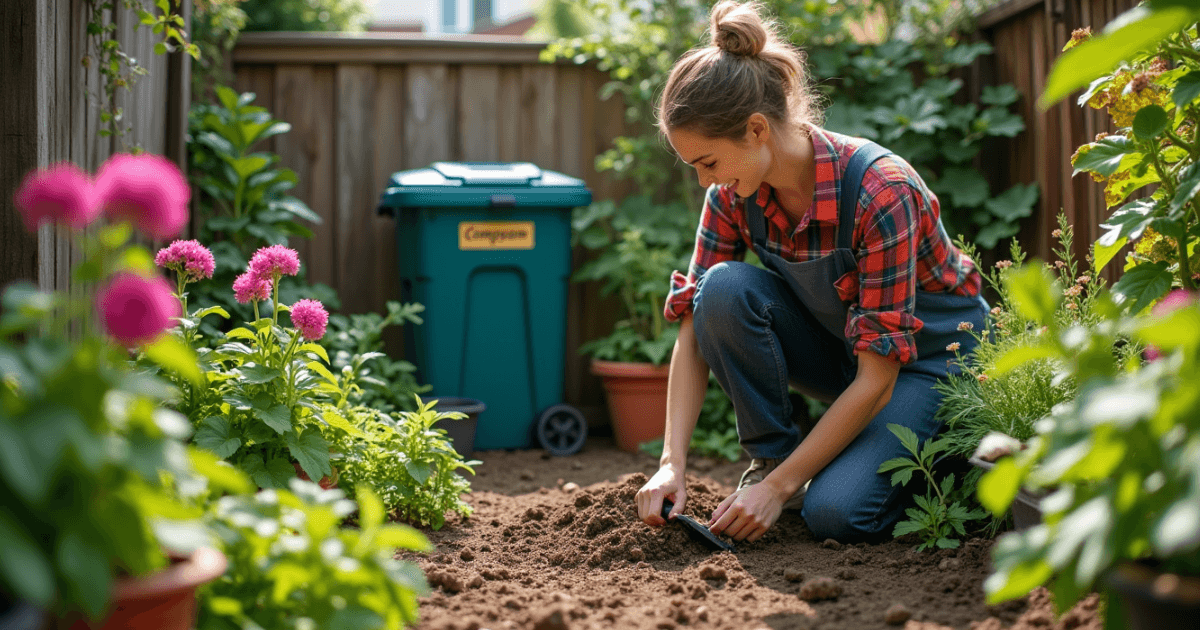Learn How to Compost at Home : 8 Essential Steps for a Greener Garden, Healthier Soil & and Happy Plants
Introduction : The Power of Compost in Home Gardening
Whether you’re growing herbs on a windowsill or cultivating a backyard vegetable patch, compost can transform your soil and boost your harvest. Composting turns everyday kitchen waste and yard clippings into nutrient-rich organic matter that feeds your plants and improves soil health.
Gardening from home isn’t just a hobby anymore, it’s a way to live more sustainably. Composting helps reduce household waste while giving back to the earth. It’s easy to start and rewarding in the long run.
Why compost ? Because it’s nature’s recycling system. It saves you money on fertilizers, retains soil moisture, and encourages healthy microbial activity. Plus, it helps plants grow stronger with fewer diseases and pests.
🌱 Fun fact: A well-composted garden can reduce your watering needs by up to 30% !
Table of Contents
🌱 What is Compost and Why Every Home Garden Needs It
Compost is decayed organic material like food scraps, leaves, and garden clippings—that breaks down into a dark, crumbly substance full of nutrients. It’s often called “black gold” for its ability to enrich soil naturally.
Types of Compost :
- Cold composting : A slower process that requires little effort. Just pile up your scraps and wait.
- Hot composting : A faster method that needs regular turning and the right balance of greens and browns.
- Vermicomposting : Using worms (usually red wigglers) to break down organic matter in bins, ideal for indoors.
- Bokashi : A method that ferments food waste, even meat and dairy, using microbes.
Benefits for Home Gardeners :
- Boosts soil fertility and plant growth
- Improves water retention and drainage
- Reduces the need for chemical fertilizers
- Cuts down kitchen and yard waste
- Attracts beneficial organisms like earthworms
If you’re composting garden waste alongside kitchen scraps, you’ll see results within weeks to months, depending on the method.
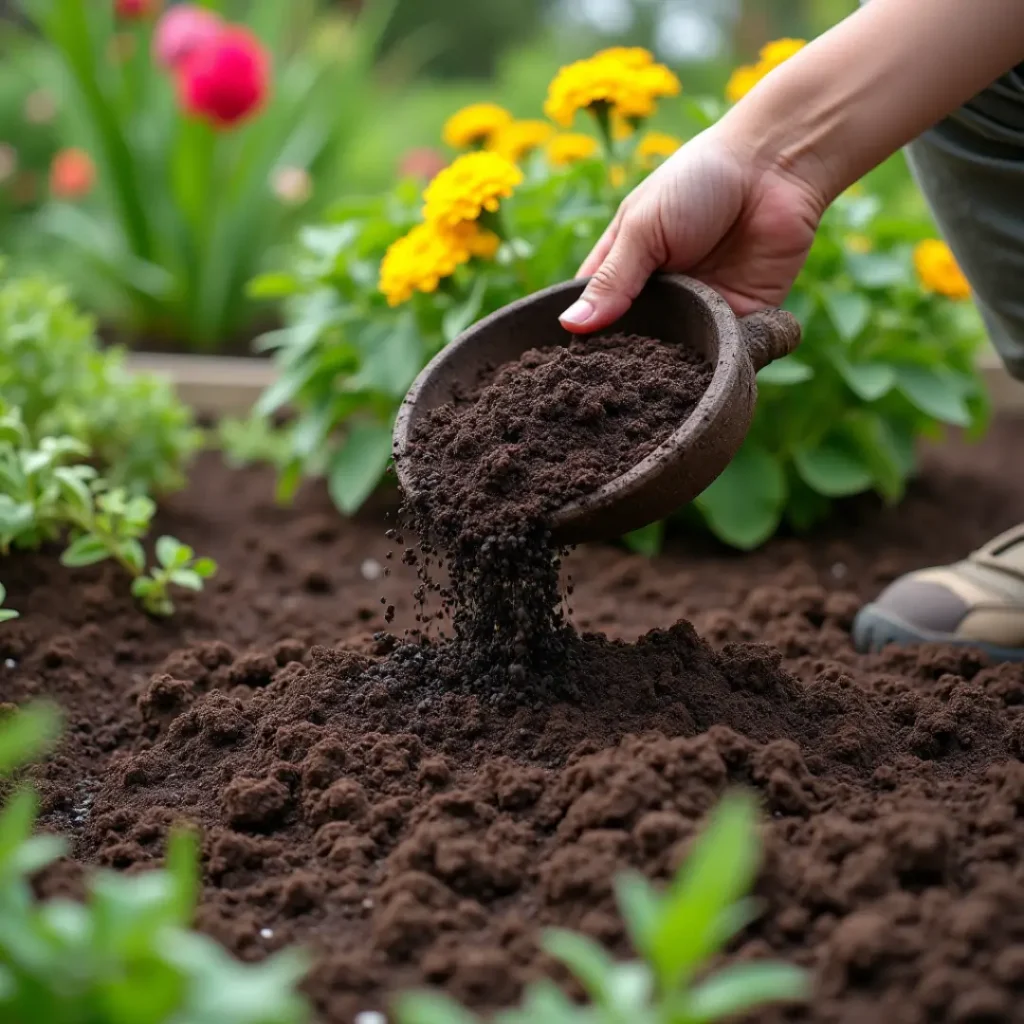
🛠️ How to Make Compost at Home : Step-by-Step :
Creating compost is easier than most people think. Here’s how to start making compost at home :
1. Choose a Location :
Pick a spot in your yard, balcony, or even kitchen corner. If you’re composting indoors, go for a compost bin or worm bin.
2. Select a Composting Method :
- Outdoor bins or piles for yards
- Enclosed tumblers for faster results
- Countertop composters for food waste indoors
3. Collect Your Materials :
Greens (Nitrogen-rich) :
- Fruit and veggie scraps
- Coffee grounds
- Grass clippings
- Tea leaves
Browns (Carbon-rich) :
- Dry leaves
- Cardboard
- Newspaper (shredded)
- Sawdust (untreated)
4. Build Your Pile or Bin :
Layer greens and browns. Aim for a 2:1 ratio of browns to greens.
5. Maintain Your Compost :
- Keep it moist like a wrung-out sponge.
- Turn it every 1–2 weeks for aeration.
- Chop large items for faster breakdown.
6. Wait and Observe :
In warm conditions, hot compost can be ready in 2–3 months. Cold compost takes 6–12 months.
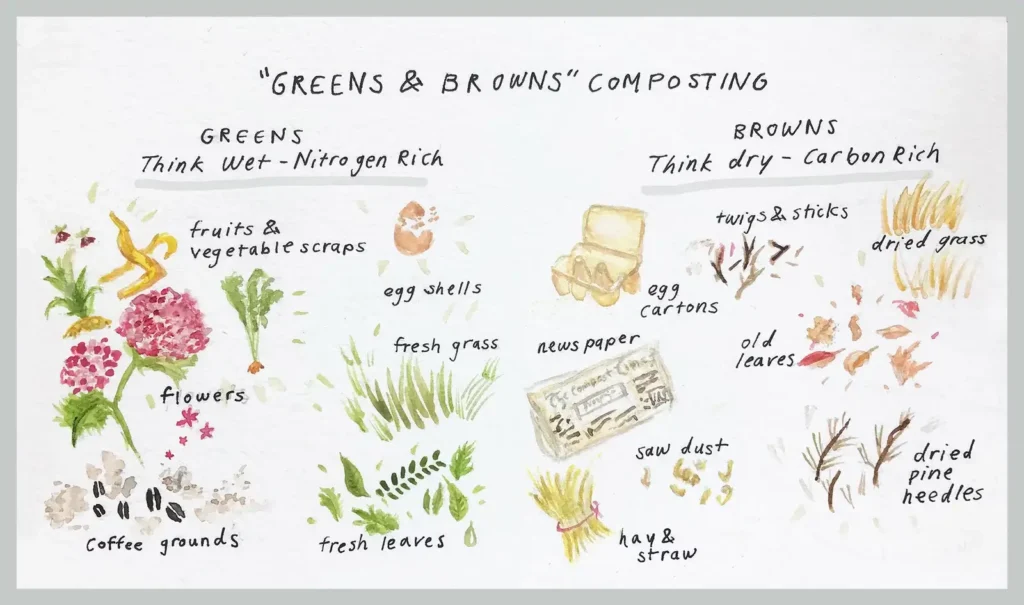
❌ Common Mistakes in Composting and How to Avoid Them :
Even experienced gardeners can run into composting problems. Here’s how to fix the most common issues:
1. Bad Odor :
- Problem : Too many greens or poor airflow.
- Fix : Add more browns and turn the pile.
2. Pests or Flies :
- Problem : Exposed food or incorrect materials.
- Fix : Avoid meat/dairy, bury fresh scraps under browns.
3. Compost Not Breaking Down :
- Problem : Dry or compacted pile.
- Fix : Add water, turn more often, and check the balance of greens and browns.
4. Slimy or Wet Pile :
- Problem : Too many wet greens.
- Fix : Add dry leaves or cardboard.
Avoid adding :
- Meat or bones
- Dairy
- Oily foods
- Pet waste
- Diseased plants
🏢 How to Compost Without a Backyard : Urban & Apartment Composting Tips :
No yard ? No problem. You can still compost even in an apartment.
Options for Small Spaces :
- Worm bins : Compact, odor-free, and perfect under sinks.
- Bokashi bins : Ferment food waste indoors, then bury or add to soil.
- Electric composters : Speed up decomposition using heat and grinding.
Pro Tips :
- Use charcoal filters to prevent odor.
- Freeze scraps until you’re ready to compost.
- Store compostables in a countertop container with a tight lid.
Worried about worms ? Vermicomposting is easy and doesn’t smell if done right.
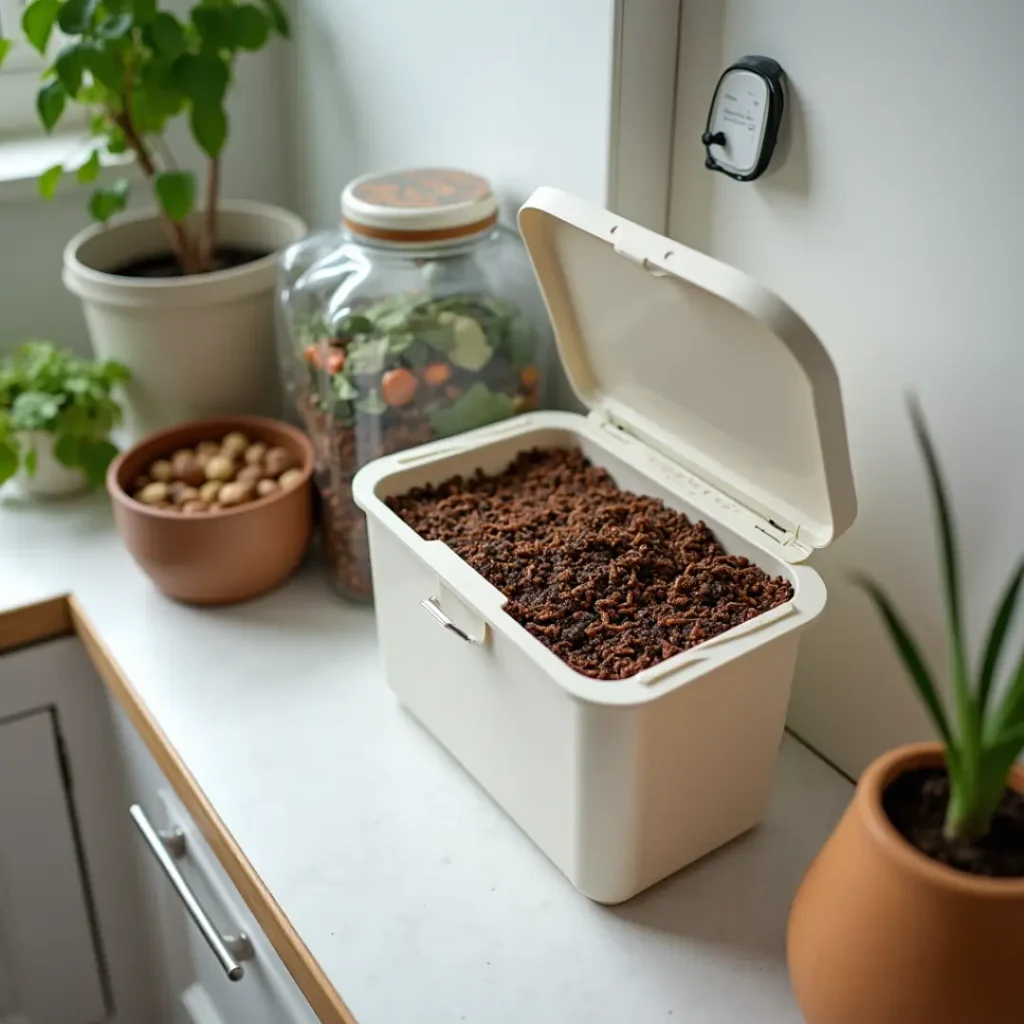
📅 How and When to Add Compost to Your Garden :
Once your compost is ready, it’s time to feed your garden.
When to Add Compost :
- Spring : Before planting, mix compost into garden beds.
- Fall : Top-dress soil to enrich it over winter.
- Mid-season : Boost plants with compost tea or a thin layer around roots.
How to Apply :
- Top-dressing : Spread a 1–2 inch layer on top of soil.
- Mixing : Blend into soil before planting.
- Compost tea : Steep compost in water, then water your plants with it.
Start slow. You don’t need a huge amount to see big results.
🌼 Composting for Vegetable Gardens, Lawns, and Flower Beds :
Compost works wonders for all parts of your garden.
Vegetable Gardens :
- Enriches soil naturally
- Promotes bigger harvests
- Prevents diseases with better soil structure
Lawns :
- Top-dress with sifted compost in spring/fall
- Helps with aeration, water retention, and root growth
Flower Beds :
- Boosts blooms and color
- Keeps soil loose and rich
- Helps flowers resist stress and pests
Whether you’re planting tomatoes or roses, compost improves nutrient uptake and encourages stronger plants.
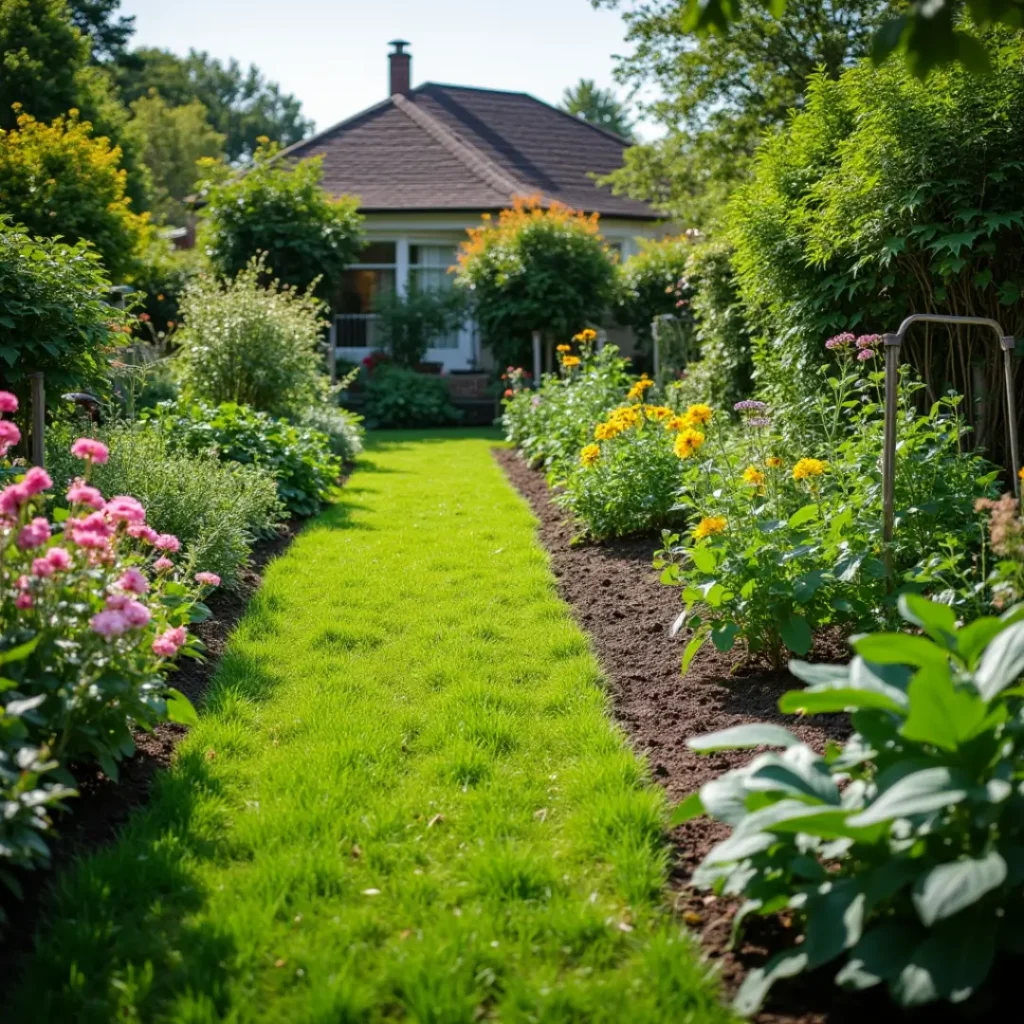
🔥 Advanced Composting : Hot vs Cold, Turning Techniques, and Speeding Up Decomposition :
Ready to level up your composting ?
Hot Composting :
- Requires turning every 2–3 days
- Reaches temps of 130–160°F
- Fastest method (1–2 months)
Cold Composting :
- Slow and low-effort
- Takes 6–12 months
- Great for beginners
Speeding It Up :
- Shred materials into smaller pieces
- Maintain the green-brown balance
- Add activators like coffee grounds or manure
Use tools like compost thermometers, aerators, or tumblers to monitor and speed up the process.
✅ How to Use Finished Compost : Storage, Testing, and Application :
You’ll know compost is ready when it smells earthy, is dark brown, and crumbles easily.
Storage :
- Store in a dry, covered bin
- Use within 6 months to keep nutrients fresh
Testing :
- Sift to remove unfinished chunks
- Optional: pH testing for specific crops
Application :
- Mix with potting soil for containers
- Spread as mulch around plants
- Brew into compost tea for foliar feeding
There’s no such thing as “too much compost,” but use it wisely to avoid nutrient imbalances.
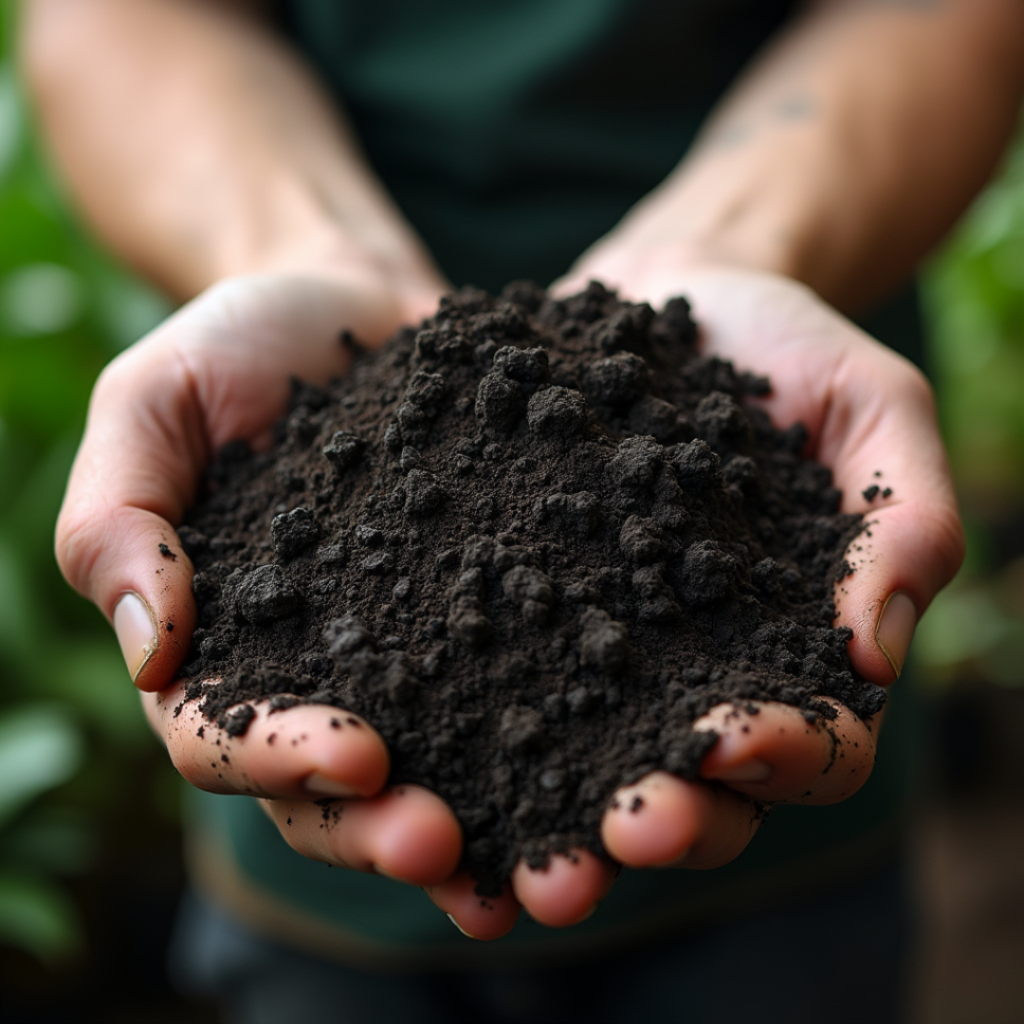
🎯 Conclusion : Start Gardening from Home with Compost Today :
Composting is simple, impactful, and incredibly rewarding. Whether you have a sprawling yard or a small apartment, there’s a composting solution for you. You’ll reduce waste, grow healthier plants, and build better soil.
Start with what you have. A few scraps, a container, and the motivation to try something sustainable. Before you know it, your home garden will thrive—and the planet will thank you.
FaQ :
🌿 1. What is natural composting ?
Answer :
Natural composting is the process of turning kitchen scraps, garden clippings, and other organic materials into nutrient-rich compost without using synthetic additives. It’s a sustainable and affordable way to improve your soil health while reducing waste—perfect for gardening from home.
🌱 2. How do I start composting at home with no experience ?
Answer :
Start with a simple compost bin or pile. Add a mix of “greens” (like fruit peels and grass) and “browns” (like dry leaves or cardboard) in a 1:2 ratio. Keep the pile moist and turn it weekly. It’s the easiest way to get into natural composting, even as a beginner.
🏡 3. Can I compost indoors if I don’t have a backyard ?
Answer :
Yes! You can use a worm bin, Bokashi system, or countertop composter. These methods allow you to compost naturally in small spaces without odors, making composting from home accessible—even in apartments.
🍂 4. What should I avoid putting in my compost pile ?
Answer :
Avoid meat, dairy, oily foods, pet waste, and diseased plants. These items can attract pests or slow down the composting process. Stick to safe, plant-based materials to keep your natural composting system healthy.
🌻 5. How long does natural composting take ?
Answer :
It depends on the method. Hot composting can take 2–3 months, while cold composting takes 6–12 months. Regular turning, balanced materials, and warm weather can speed up the process significantly.
💧 6. How do I know if my compost is ready to use ?
Answer :
Finished compost is dark, crumbly, and smells like fresh earth. You shouldn’t be able to recognize any of the original scraps. Use it in garden beds, pots, or lawns to feed your plants naturally.
🌼 7. What’s the best way to add compost to my garden ?
Answer :
Spread 1–2 inches of compost over your soil or mix it into planting beds before growing. You can also make compost tea by steeping compost in water and using it to feed plants. This is a key step in learning how to add compost to garden soil the right way.
🪴 8. Why is composting important for home gardeners ?
Answer :
Composting improves soil health, boosts plant growth, and helps retain moisture. It reduces waste and reliance on chemical fertilizers. For anyone gardening from home, it’s one of the most powerful tools for building a resilient and productive garden naturally.

